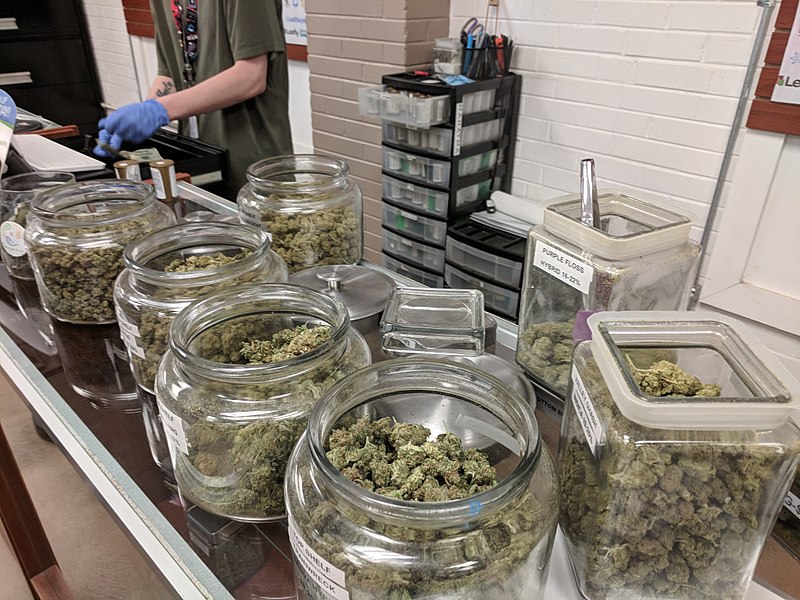On August 14, New Mexico Governor Michelle Lujan Grisham convened the first public hearing of her cannabis legalization working group. She plans to hold at least four meetings this year to develop proposed legislation ahead of the state’s next legislative session in January 2020.
Earlier this year, a legalization proposal, HB 356, came close to becoming law after passing the state House of Representatives, but it died in the state Senate. It failed to secure enough votes after being combined at the last minute with a Republican amendment that proposed, among other measures, a state-run cannabis retail monopoly.
That idea proved extremely contentious among cannabis advocates, and it resurfaced at this week’s meeting. Interestingly, state Democrats are pushing to allow private retail and encourage entrepreneurship. Republicans are supporting the state-run model, citing public safety and control of the cannabis supply—a situation that flips the traditional partisan positions on government control of industry.
New Mexico Republicans argue that state-run cannabis retail would prevent stores from clustering in urban areas. New Mexico is the sixth least-densely populated state, with most of its population in the Albuquerque and Santa Fe metropolitan areas. New Mexico already has an established medical cannabis program, and according to Leafly, of 34 currently licensed medical cannabis producers in the state, more than half are located in these two cities, limiting access for patients in other areas.
Cannabis advocates believe that encouraging small businesses to produce and sell cannabis would benefit patients and consumers by spreading access.
“New Mexico’s population density is nothing near Colorado’s or California’s, so encouraging home growers or small-time growers will be helpful,” Cavid Zano of the New Mexico Medical Cannabis Patients Advocate Alliance told Filter. “Right now only Albuquerque has a sufficient supply of cannabis while the rest of the state suffers. The best way to keep it fair is to have the state regulate it, but make it affordable for any New Mexico resident to participate in the industry.” Zano cited the example of the beer industry, where small and local craft breweries compete alongside giants like Ahnheuser-Busch and Molson Coors.
William Ford of Reynold Greenleaf and Associates, a company that manages three cannabis licenses in the state, also told Filter that a state-run model would not allow small and local producers to be a part of the industry. “But we have recommended in the past, and continue to support, the idea of the state issuing county-specific retail licenses,” he said. “This idea would allow local entrepreneurs or existing retailers to develop distribution locations in more remote areas.”
In other states, cannabis dispensaries have disproportionately clustered in low-income areas of cities such as Denver and Seattle, according to a 2017 analysis by Marijuana Business Daily. It attributed this trend to difficulties in finding affordable real estate in wealthier neighborhoods, as well as taboos against cannabis in earlier years of the industry.
New Mexico lawmakers are also considering how best to protect the medical cannabis program. This year, the state Department of Health published a survey finding that 55 percent of the state’s medical producers cannot keep up with patient demand. Patient enrollment in the medical program increased by 39 percent in the last year—but cannabis sales increased by only 16 percent.
State Representative Javier Martinez (D-Albuquerque) has proposed ideas like eliminating medical cannabis sales tax, offering subsidies for low-income patients, and eliminating registration fees for patients entering the program. Department of Health Secretary Kathyleen Kunkel expressed concern that patient numbers have declined in other states that have legalized recreational use, saying, “My role is to protect the medical program.”
Image by My 420 Tours via WikiMedia Commons.





Show Comments